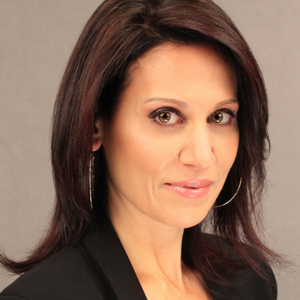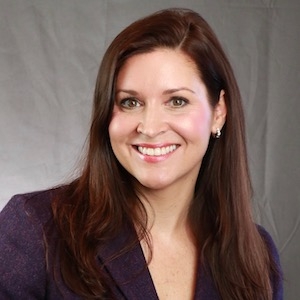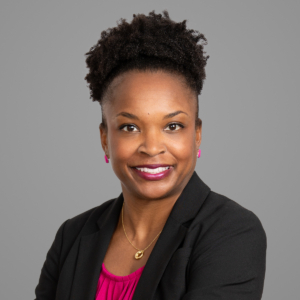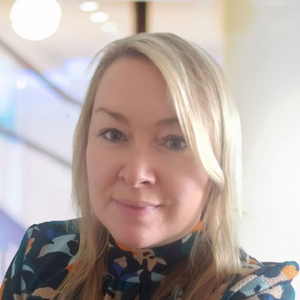Women Leaders in Tech: Insightful Tips Across Twelve Career Themes
 We’ve mined some key insights across twelve topics from inspiring senior women leaders in tech-related roles and companies that we have interviewed over the last five years.
We’ve mined some key insights across twelve topics from inspiring senior women leaders in tech-related roles and companies that we have interviewed over the last five years.
On being broadly curious:
“Curiosity is a hallmark of who I am and has been a huge enabler to my success. I personally like to know enough about everything ‘to be dangerous’ and went out of my way to equip myself with that knowledge,” said Aine Leddy. “That curiosity has served me, particularly with my entreé into the tech COO world. I could show up at the table and enter right into a discussion about the business strategy and where technology fits in, and that was apparent to the people who have given me the opportunities.”
Words from: Aine Leddy: Information Technology Business Partner, AIG Investments
On recruiting for tech (and all) roles:
“As a product team leader, when recruiting, I seek out qualities like resourcefulness, creativity, and other traits that don’t necessarily jump off the page when reading a resume or browsing a LinkedIn profile,” said Loredana Crisan. “I’d encourage all product leaders to be more open-minded throughout the recruitment process. Just because a candidate’s background differs from the conventional, doesn’t mean they aren’t qualified.”
Words from: Loredana Crisan: VP, Messaging Experience — Messenger & Instagram (update: Crisan is now VP at Messenger)
On leveraging the advantage of your difference:
“My professor told me that when he goes into a classroom, he doesn’t know who the best students are. But when he sees a female student or person of color, they get his attention right away,” recalled Rose-Gaëlle Belinga from university. “That’s how my professor challenged me, not to look at being underrepresented as holding me back but as an advantage… Because I really have people’s attention, I make sure that my work speaks for itself, that people take me seriously.”
Words from: Rose-Gaëlle Belinga: Technology Associate, Morgan Stanley (update: Belinga is now a VP at Morgan Stanley)
On the freedom that comes with risk-taking:
“You can have loads of failure but if you have tenacity, the chances are you’re going to figure it out as you try and fail, as you go along,” said Niamh Bushnell. “There’s a lot of freedom when you’re comfortable with risk, and with freedom comes creativity. Don’t worry if every single step isn’t going to come out as you want it to. Often times you don’t even know what the ideal outcome is, until you start.”
Words from: Niamh Bushnell: Chief Communications Officer (CCO), Soapbox Labs (Update: Bushnell is now Chief Marketing Officer at Soapbox Labs)
On the self-validating reflection of mentors and sponsors:
“Sometimes you don’t even see your own potential,” said Sabina Munnelly. “But when someone makes it clear that they see something in you, their belief in you can help grow a belief in yourself that you might have not even had.”
Words from: Sabina Munnelly: Partner, Baringa
On inviting support and asking uncomfortable questions:
“Reaching out for help or advice does not subvert you from your task of getting to what you want to do, and it could have gotten me there faster. Be open to others’ opinions. Don’t be afraid to ask uncomfortable questions, but also be prepared for the tough answers,” said Trisha Sircar. “It’s really important to get different perspectives from different people, from different backgrounds and different facets of the profession.”
Words from: Trisha Sircar; Partner, Privacy, Data and Cybersecurity, Katten
On why different perspectives are essential:
“It’s essential to create the space for people to be heard, especially when some aren’t as comfortable voicing their opinions,” said Stephanie Schultz. “I don’t want to be in a meeting and have everybody agree with a particular direction or discussion. I want to hear the people who are dissenting, or might have a different perspective, because it’s a pressure test – it’s helping to make sure that we’re getting to the most thoughtful outcome.”
Words from: Stephanie Schultz: VP & Head of Partnerships, Amex Digital Labs
On listening deeper as a leader:
“In an emotionally charged situation, I will encourage the team to tease out the facts, take the personalities out of it and then listen for what is not being talked about,” said Danielle Arnone. “The leaders that I admire most have the ability to listen deeply and surface the question behind the question, without putting people on the defensive, and in a way that takes the conversation to the next stage.”
Words from: Danielle Arnone: Chief Digital & Technology Officer, Combe
On embracing failure as part of growth mindset:
“I want to see what happens, and if I am going to fail, I want to fail fast, learn from my mistakes and get up and run again,” said Anna Thomas. “Everyone is going to fail at some point. Everyone is going to have their bad projects. Try to just do it in small cycles, learn fast, and then apply your learning and keep moving.”
Words from: Anna Thomas: Vice President, Private Banking Technology at Brown Brothers Harriman (update: Thomas is now Director, Operations & Technology Transformation at Citi)
On getting real with yourself about work-life effectiveness:
“If one part of the pie gets more dominating than you want it to be, you have to consider how to make that part smaller so you can ‘right-size’ your family life or your spiritual life, for example. That has really helped me to compartmentalize what I’m doing and how it impacts the other parts of my life,” said Kate Kenner Archibald. “If your work is really impacting your home life, take that step back to figure out what and how you can fix it. Push for flexibility, which is becoming more common, or figure out what the issue is. But if you’re not satisfied with how much time you have with your family, you’re never going to be happy at work, no matter how much money you’re making.”
Words from: Kate Kenner Archibald: Chief Marketing Officer, Dash Hudson
On keeping knocking at the door, regardless:
“I think women do ourselves a disservice, because we take things personally and get annoyed with our manager if we don’t get the raise or promotion,” said Aine Leddy. “Whereas men seem to think, ‘If it doesn’t happen, I’ll get back in the ring and I’ll fight the good fight again next year.’ Ultimately, promotion is a numbers game. It can’t happen for everybody all of the time, so rather than take it so personally, elevate your case and prepare to ask again.”
Words from: Aine Leddy: Information Technology Business Partner, AIG Investments
On the potential to impact meaningful change in tech:
“Is your AI developed in a way that is equitable – that doesn’t have inherent gender bias or racial bias? If voice tech doesn’t recognize a kid’s dialect and gives them a lower score on a reading assessment because they don’t pronounce words in the way the AI has been built to understand them, they’re going to lose out at school,” said Niamh Bushnell. “The way technology is built these days hugely impacts people’s quality of life – including their physical and mental health – and it can impact them socioeconomically too. Equity is a big piece.”
Words from: Niamh Bushnell: Chief Communications Officer (CCO), Soapbox Labs (Update: Bushnell is now Chief Marketing Office at Soapbox Labs)
On defining your own career ladder:
“The entire career landscape is shifting and new opportunities are emerging rapidly. Developing a portfolio of skills you can apply in many ways, no matter what path you take, makes your career more dynamic and resilient,” said Joyce Shen. “Conventional wisdom would say the path you follow is a ladder and you progress according to that ladder, but in business and technology there isn’t a ladder that is given to you even though it can seem that way. You can create that ladder yourself, and it doesn’t really matter what shape it takes, as long as there is a strong purpose to the work and that you are enjoying the journey and making an impact. It doesn’t have to be the same ladder that everybody is climbing.”
Words from: Joyce Shen: AI investor, board director, author, and data science at UC Berkeley
Interviewed by Aimee Hansen










